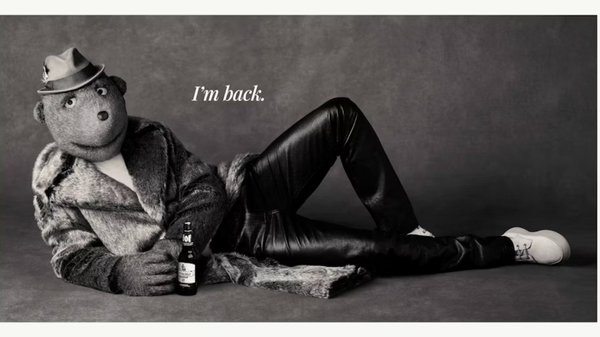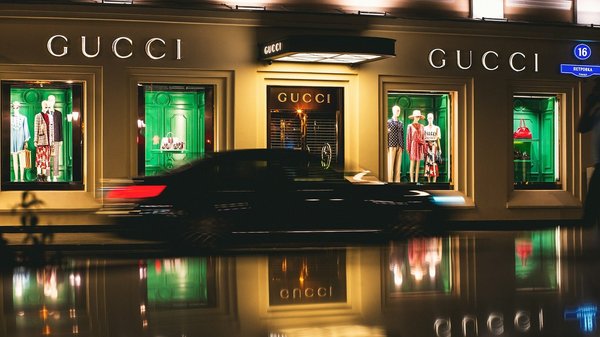Greenhushing is on the rise — and I welcome it /
It's good that brands have been cowed by accusations of greenwashing, argues Solitaire Townsend, chief solutionist at Futerra.

Greenhushing, as you’ve probably heard, is on the rise. Greenhushing is greenwashing’s silent twin — it happens when companies try to avoid criticism, for not doing enough or being too woke, by hiding their green credentials instead of shouting about them.
As many as one in four companies with solid, science backed net-zero targets are choosing to keep them under wraps, and apparently, 58% of companies are decreasing their climate communications.
Companies ‘going green then going dark’ is often heralded as bad news, and something which poses an “insidious threat to progress”.
But I disagree. A bit of greenhushing is a good thing — not because brands shouldn’t shout about their green credentials, but because they need to stop going on about themselves.
Far too much sustainability and purpose marketing over the last decade has been a cynical attempt to burnish brands’ reputations. Gongs and honours to award sustainable businesses have proliferated, and ESG-focused campaigns have painted businesses as green heroes. This kind of self-centred greenwash was ego-marketing, not eco-marketing — and to that I say, good riddance.
Remember Lufthansa’s – widely criticised – ‘protecting the world’ campaign? It implied that the company’s planes could save the planet. The ads were banned for greenwashing, but its grandiosity is just as troubling.
This isn’t a new problem. Brands have been piling money into mediocre, self-involved cause marketing campaigns for years. Spend on cause-related marketing reached $2.24 billion in 2019 in the United States alone, and much of it fell into the ego-marketing trap.
Only recently have brands begun to think twice and pipe down. So, why now?
There are three factors squeezing the old-skool marketing status quo:
The ‘year of elections’ is upon us. 2024 will see more than 50 countries, home to more than half the world’s population, holding national elections, which means a barrage of political headlines and messages that will fill our social media feeds and fuel our dinner-table conversations. The competition for our attention will be fiercer than ever. Many brands will choose to stay quiet, to avoid controversy while the stakes, and tensions, are high.
There’s nowhere left to hide. Thanks to a raft of requirements and rulings coming into force, we have reached a watershed when it comes to sustainability reporting. The European Union’s (EU) Corporate Sustainability Reporting Directive (CSRD), the US’s recent SEC ruling and the UK’s Transition Plan Taskforce are all tightening the rules on how companies report on their impact or disclose their sustainability plans. I can’t help laughing when people tell me companies are now sharing less than they used to, just after CSRD has come into force. Transparency today is not a choice. The reality is that, rather than a hush around environmental data, we’re being inundated with brilliant detailed and carefully audited information.
Greenwashing has been kicked to the curb. In a landmark move, the EU has just brought into force stringent and wide-ranging rules to ban vague and unsubstantiated environmental claims. The US and others are likely to follow suit. Brands can no longer ask their creative agencies to trot out another ‘green’ campaign without a real sense of jeopardy. Every company now needs to check and double check its messaging. Campaigns will need to be more rigorous and more thoughtful — and therefore slower to make their way out into the world.
These forces are shaping how marketers do their job, and I welcome them wholeheartedly. It was high time the ego-marketing cull got underway. And the best thing about it? It makes room for messaging that matters.
What ego-marketing campaigns forget is that there is a real, breathing, thinking, feeling human being on the receiving end of them — consumers with worries and hopes about the fate of the environment and their own lives. So often, brands ignore real people and their emotions. The lofty claims in their ad campaigns might feel inspiring for a moment, but they leave me — and the people they’re targeting — cold.
What if brands put their consumers at the heart of their sustainability campaigns? What if they told a story about a product that offers people something better — tastier, softer, warmer, faster — because of its sustainability benefits?
Brands’ job today is to make sustainability the easiest, most accessible and appealing choice for everyday people. Needless to say, putting themselves on a pedestal is definitely not the best way to do that.
There is a huge and growing need for credible, honest, inspiring sustainability communications. At my agency, Futerra, we are already seeing this need in action. Our clients want:
● More employee learning and engagement. We’ve run more campaigns and training for staff this year than ever before. The businesses doing sustainability right are thinking about it from the inside out, and bringing their whole teams with them.
● More partnerships with creators. Social media content creators have close relationships with their followers, and can speak to them in ways that a flashy billboard or expensive PR campaign can’t. They talk to their followers, human being to human being, about the reality of sustainable living and sustainable products.
● More focus on product over purpose. Companies are innovating fast, and want to tell their customers about the benefits of their new sustainable products. Expect to see more of this as EU regulations limiting single-use plastic come into force. Products will have to evolve quickly, and brands will (and should!) want to tell these stories. Less purpose fluff, more product stuff.
So does all this greenhushing signal the death of ego-marketing? Sadly, not likely. It waxes and wanes as marketers continue to chase an always evolving answer to ‘what works?’. But with each tide, a few more brands learn the truth: that real value, real impact, comes from messaging that matters.
Want more of the same? /
We don’t just write about best-in-class campaigns, interviews and trends. Our Members also receive access to briefings, online training, webinars, live events and much more.







